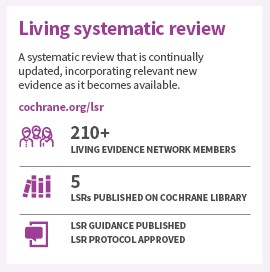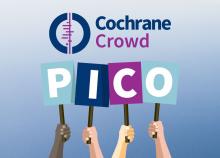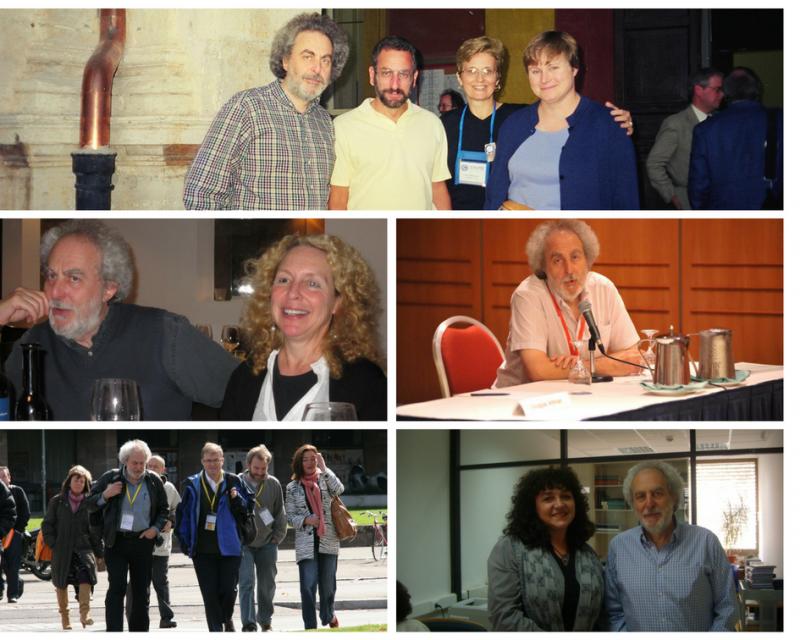From living systematic reviews to living recommendations

Living systematic reviews (LSRs) provide a new approach to support the ongoing efforts of Cochrane and others to produce evidence that is both trustworthy and current. Four author teams and editorial groups across Cochrane are currently involved in the pilot and evaluation of LSRs. The pilot will help us understand the feasibility of LSRs, the implications for the people and processes involved and identify opportunities to refine the LSR model before scaling up.

Living systematic reviews on venous thromboembolism
A team led by Elie Akl, American University of Beirut, and Holger Schünemann, McMaster University in Canada, working with Cochrane Gynaecological, Neuro-oncology and Orphan Cancers, is currently maintaining a suite of three Cochrane LSRs that will underpin guidelines by the American Society of Hematology (ASH) on the prevention and treatment of venous thromboembolism (VTE) in patients with cancer. ASH funded the work as part of a larger collaborative project with the McMaster University GRADE Centre to develop 10 guidelines on VTE (see press release here: American Society of Hematology—University of McMaster Clinical Practice Guidelines on Venous Thromboembolism).
The following Cochrane Reviews on VTE in patients with cancer are now being maintained as LSRs:
- Parenteral anticoagulation in ambulatory patients with cancer
- Oral anticoagulation in patients with cancer who have no therapeutic or prophylactic indication for anticoagulation
- Anticoagulation for the long-term treatment of venous thromboembolism in patients with cancer
The ASH guidelines are expected to be published in 2018. Similar to systematic reviews, guideline recommendations become outdated at variables rates. Increasingly, guideline developers internationally are starting to explore new processes and tools for timely update of recommendations, or for living guidelines. While there remains much to be explored about the living guideline model, a necessary prerequisite is the availability of LSR(s). ASH has begun discussions with the Cochrane team about using these LSRs to pilot a living guideline model.
Such a model “presents both opportunities and challenges,” says Rob Kunkle, Senior Manager of Guidelines at ASH. “Clinicians and patients need up-to-date guidance, especially on topics or questions where new evidence is likely to change a recommendation. At the same time, we need to figure out a surveillance and updating approach that is practical for our society to do, for our journal to publish, and for our guideline users to understand and implement. We look forward to exploring different approaches.”
You can check for updates to these and Cochrane’s other LSRs in the What’s New section of these reviews on the Cochrane Library, and soon Cochrane will be capturing this information via its amended Update Classification System.
With these reviews now published in living mode, Elie and team can start the exciting work of testing how Cochrane’s living evidence can flow into living guideline recommendations. Elie says, “While we’ve been discussing living systematic reviews and living guidelines for few years now, it is exciting that we are contributing to making this happen. It wouldn’t have been possible without great partners, like Cochrane and the American Society of Haematology”.
Support for Project Transform was provided by Cochrane and the National Health and Medical Research Council of Australia (APP1114605). The contents of the published material are solely the responsibility of the Administering Institution, a Participating Institution or individual authors and do not reflect the views of the NHMRC.














